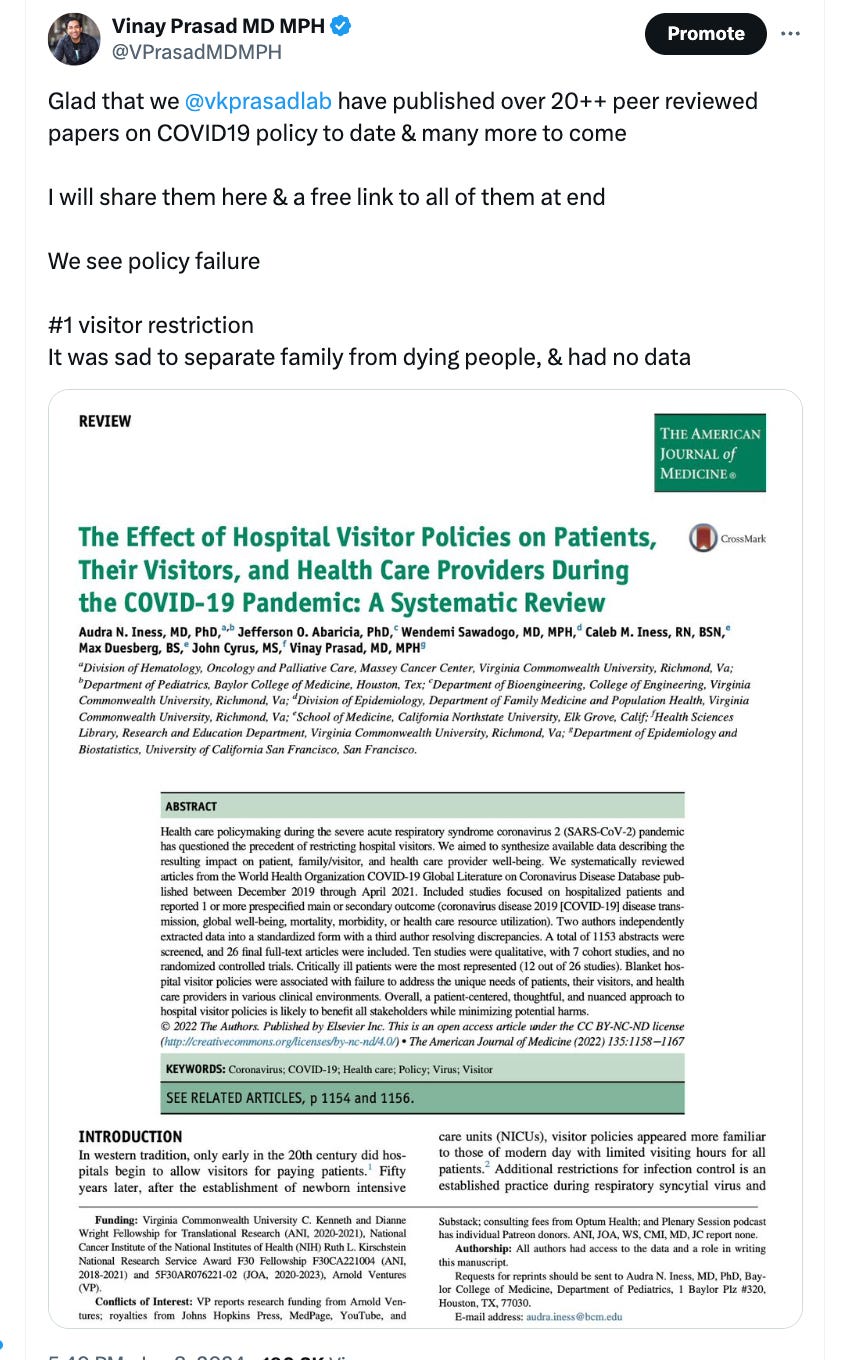Jay Bhattacharya is a superb pick for NIH director
Here is what he might do
This week, it became official: Donald Trump named Jay Bhattacharya as his nominee for NIH director.
Four years ago when Jay and colleagues suggested lockdowns and school closure were draconian and inappropriate response to the pandemic, then NIH director Francis Collins called him a fringe epidemiologist who needed to be taken down.
Four years later, Jay will get his job.
That is a type of poetic justice you only get in the movies.
Much has been written about Jay during the pandemic, but I have seen no analysis of what he is likely to do at NIH. Here are my guesses
I think Jay will create a portfolio of funding to investigate the harms of lockdowns, school closures, vaccine mandates, and other unproven draconian COVID19 measures. This will create a lasting body of scholarship which will deter future public health tyrants. I myself have worked in this space, now having authored more than 25 COVID19 papers. Read them here.
Jay will bring in ideas from John Ioannidis to improve reproducibility and data transparency. This will be a boon to science. Moving from a world where we reward scientists who claim splashy discoveries to one where we reward them from doing work that can replicate, and in doing so, provide useful insights to society, will be the single best transformation.
If you support what I am doing here, become a subscribe
Jay will change the structure at NIH and set time limits on directors and leadership positions. NIH cannot have division chiefs work in roles for 15 years. Presidents are limited to 8 years, civil servants should not get more than 10.
Jay will run randomized trials to figure out which way to give grants is optimal. One study can be the current system vs. a modified lottery, where anyone who passes a basic test of completeness is entered into a lottery. If 5 years later, there is no difference in publications, citations, h indices or any other metric, then it is safe to say study sections are a waste of time.
Jay will likely revisit diversity supplements and the NIH obsession with woke research topics and agendas.
Feel good topics like— how can we encourage homeless people to get CT scans for lung cancer— that don’t actually serve a purpose will likely be cut.
Finally, because of his economics background, I imagine Jay will be friendly towards natural experiments, and more advanced data methods. I also think this will be a refreshing change of pace.
Overall, I think Jay is superb candidate for NIH director. He will move science in directions it has not yet explored. I think the poetic justice of his appointment cannot be overstated. Here is how Margery Smelkinson puts it:





What is best about Jay Bhattacharya? I would say his integrity, poise, and respect for others and their rights. I especially value his desire to make the First Amendment his top concern. Thank you and congratulations Dr. Bhattacharya!
If I may make one suggestion…Will everyone reading this consider the scope of NIH against the enumerated powers given to the government by the Constitution. If there are activities at the NIH that fall outside these enumerated powers can we please put them on a publicly accessible list, and either stop executing these activities or begin discussing what to do with them?
For reference here is The Tenth Amendment.
“The powers not delegated to the United States by the Constitution, nor prohibited by it to the States, are reserved to the States respectively, or to the people.”
Getting back to real evidence-based medicine, cutting baksheesh from Big Pharma, and promoting people based on competency would be a great start! So excited to have Dr. Bhattacharya in this position!